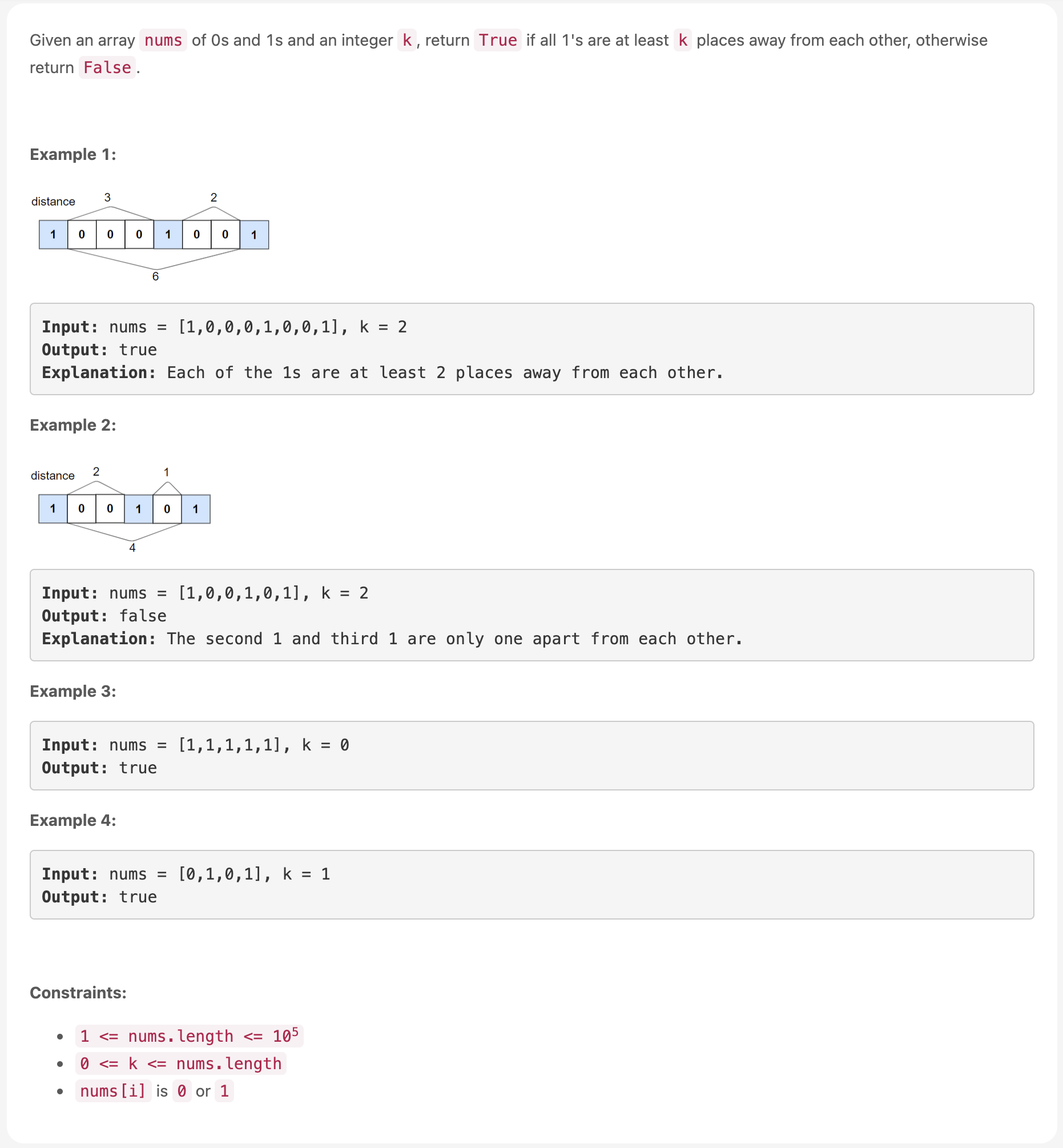Problem
Code1
/**
* @param {number[]} nums
* @param {number} k
* @return {boolean}
*/
var kLengthApart = function(nums, k) {
if (k == 0) return true;
let count = k;
for (let i = 0; i < nums.length; i++)
let n = nums[i];
if (n == 1)
if (count >= k) count = 0;
else return false;
else
count++;
// console.log(i, n, count);
return true;
};
- Complexity
Time Complexity = O(N), n iterations
Space Complexity = O(1), used a cnt variable only
code2 with bit operation
This is another way to solve this problem. It is a good example of using bitwise operation
var kLengthApart = function(nums, k) {
let x = 0;
// 1 0 0 0 1 0 0 1
// 1 => << 1 (00) | n (01)
// 0 => << 1 (010) | n (0100)
// ...
// 1 => << 1 (010001000) | n (010001001)
// x = 137
for (let n of nums)
x = (x << 1) | n;
// when nums = [0, 0, 0] or k = 0
if (x == 0 || k == 0) return true;
// remove trailing zeros
// when nums = [0, 1, 1, 0, 0, 0]
// x = 00000000 00000000 00000000 00011000
// 1 = 00000000 00000000 00000000 00000001
// 000000 and bit operation
while ((x & 1) == 0)
x = x >> 1;
// when you meet last 1 stop loop
// ex) 001000 => 001
while (x != 1)
{
// remove trailing 1-bit
x = x >> 1;
// count trailing zeros
let count = 0;
// with next 1, (x & 1)
// 011001 & 000001 == 1 != 0, stop loop
while ((x & 1) == 0)
{
x = x >> 1;
++count;
}
// number of zeros in-between 1-bits
// should be greater than or equal to k
if (count < k)
return false;
}
return true;
};
- Complexity
Same above

